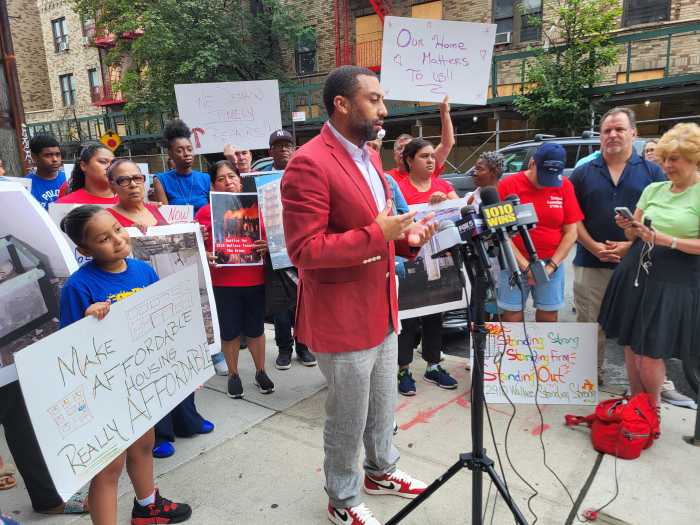A new state law drafted by a local Bronx state Senator extinguishes buddy-buddy partnerships between adjusters that negotiate insurance claims on burned homes and the contractors they peg to fix the damages.
The law, signed by Gov. Cuomo on Dec. 18, requires public insurance adjusters to disclose all potential conflicts of interests with the contractors they recommend.
Senator Jeff Klein drafted the bill in 2012 after a Bronx family accused a City Island-based adjuster company of exploiting a legal loophole to scam them out of thousands of dollars.
After his family’s Prospect Avenue home went up in flames in 2011, Chancy Marsh IV, was referred to public adjuster Adjustrite.
Public adjusters are meant to advocate on behalf of the claimant to get the best return from insurance companies, so Marsh thought nothing of it when Adjustrite steered him toward contractor Joseph Armato and his company, Venetian Contracting.
But when construction stalled and costs went up, Marsh found a glaring conflict of interest: Amato was not only a co-founder of Adjustrite, but the two companies shared an office on City Island Avenue.
Armato’s actions were within state law at the time. Before the new legislation, “independent” public adjusters were allowed to have a financial stake in a contractor’s business.
Klein’s bill, which passed the state Senate on Jun. 18, 2013 before landing on Cuomo’s desk, mandates a legal separation between adjuster and contractor. The Senator named the bill the “Gayla Marsh bill,” after Chancy’s mother.
“Public Adjusters should be fighting for homeowners, not hatching schemes to rip them off,” Klein said. “This law finally creates a firewall between contractors and public adjusters so we can end this predatory activity.”
Now it’s up to the State Department of Financial Services to enforce the new law. Klein’s office met with dozens of Bronx and Westchester residents this summer who complained of similar schemes.
If an insurance claimant files a formal complaint accusing a public adjuster of being in cahoots with a contractor, or not acting entirely on the claimant’s behalf, regulators will hold a public hearing.
If the adjuster is deemed in violation of the new law, their license can be revoked.
“My family is ecstatic that this bill is signed into law, but we’d just like to see it enforced,” Marsh told the Times Reporter. “These people are still breaking the law as we speak. “



















